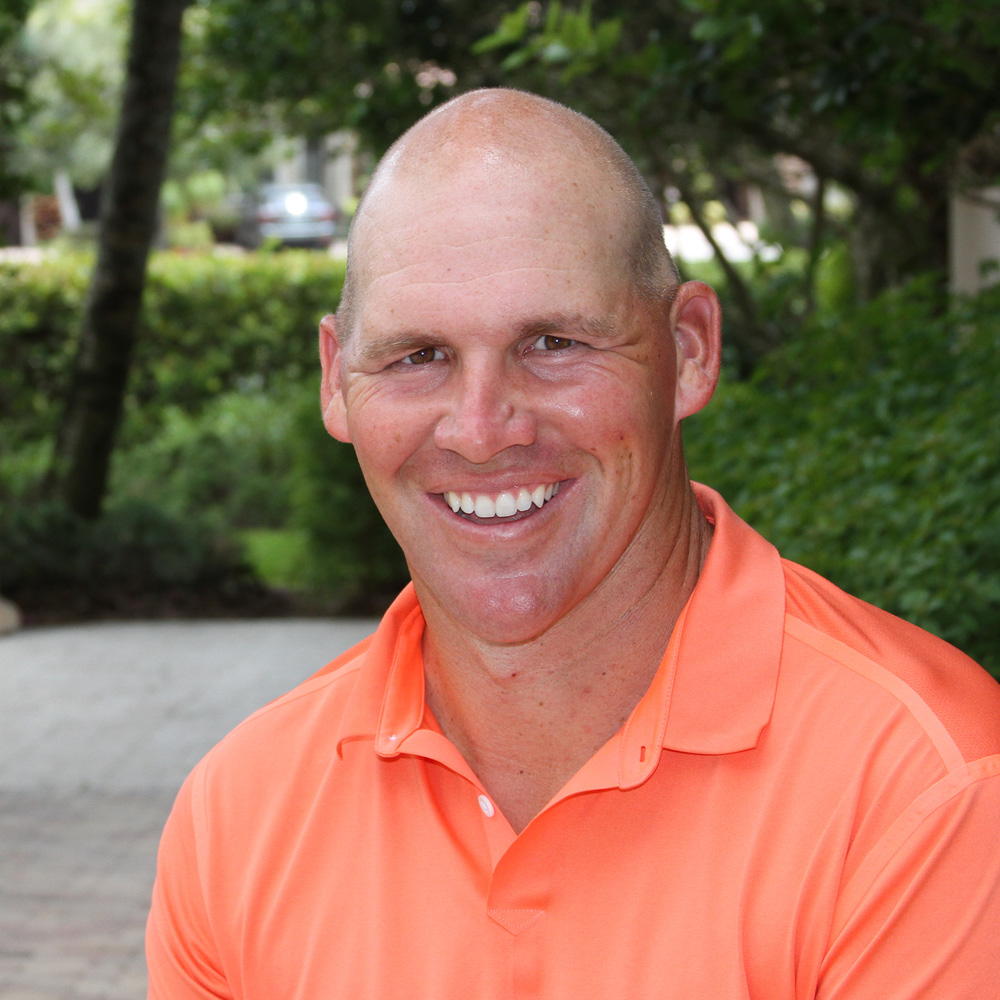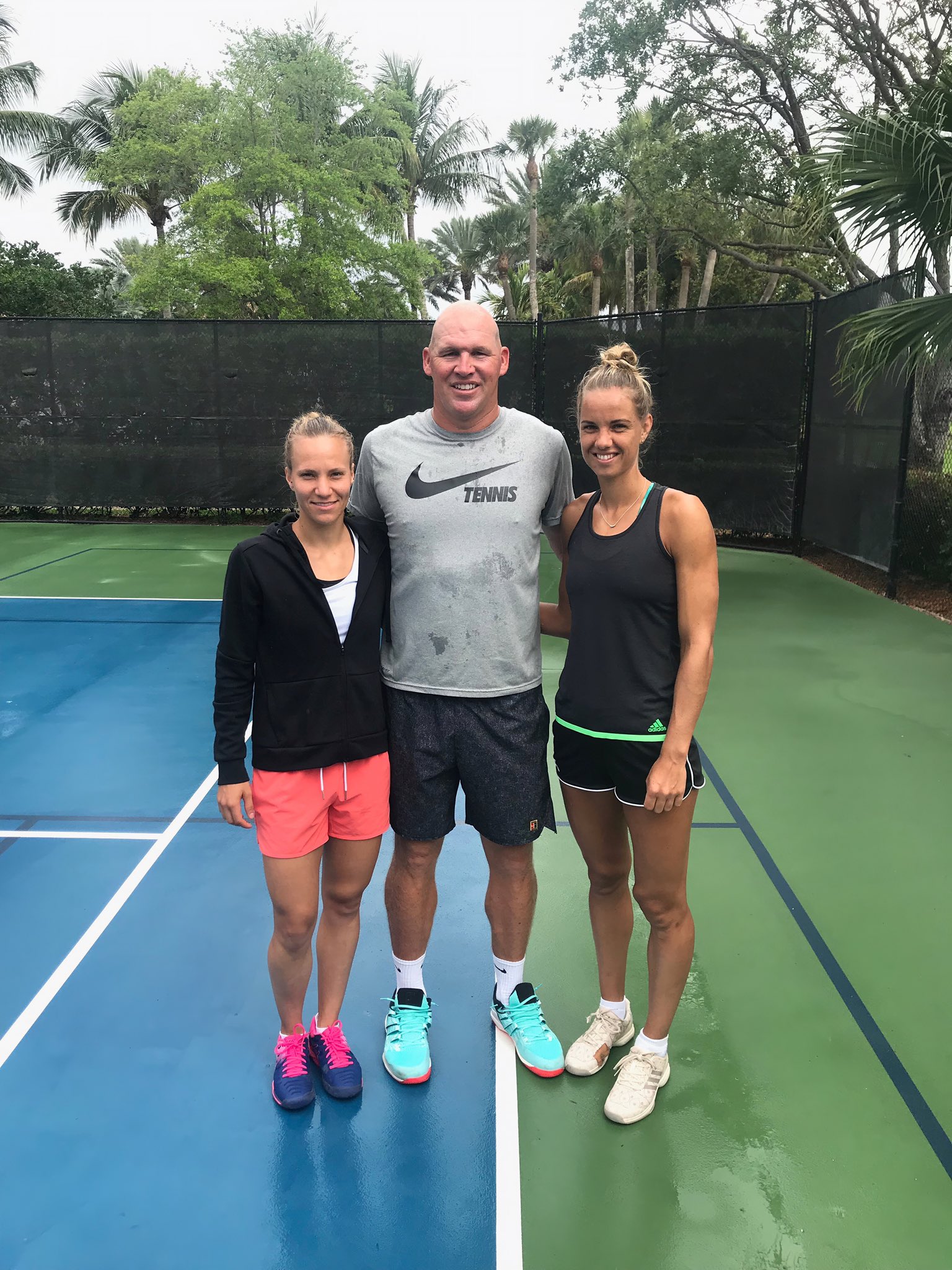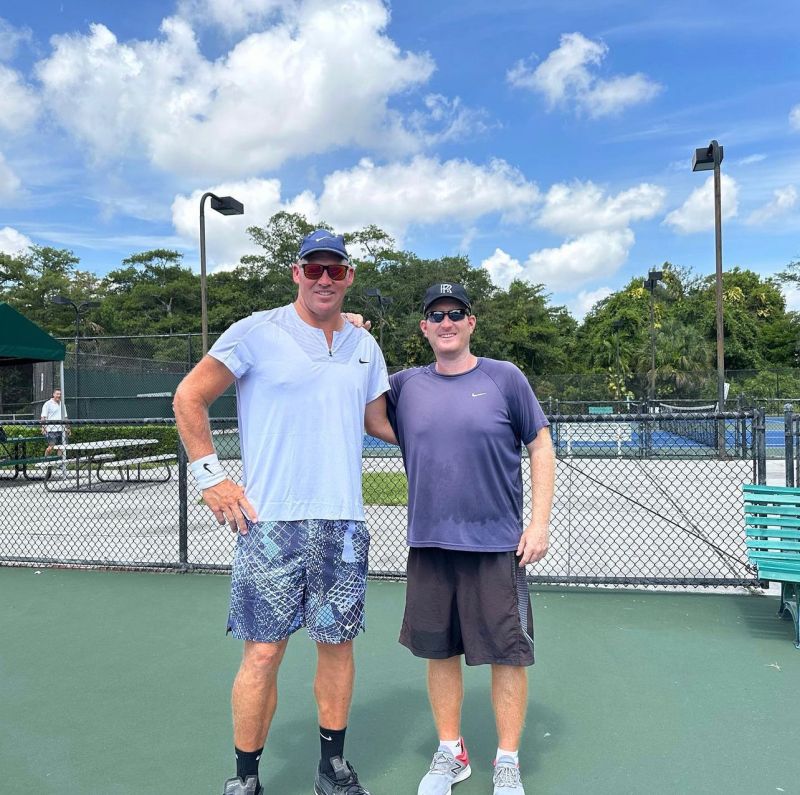In 2014, I (Kyle) coached a tennis player based in Miami. As tennis players, we like to have control over everything, but sometimes we can’t. When some players can’t control everything, they tend to become negative and focus on all the bad things. In my research, negativity was one of the seven reasons for failure. In fact, it was number two, behind fear of failure.
The player I (Kyle) was coaching was playing against a very tough opponent who was playing at her home club, with her coaches, family, and friends all there. The club was in a bad part of town, and the courts were not in great shape. Every time my player missed a ball, the opponent’s entourage cheered wildly. The South Florida afternoon was incredibly hot and humid, and it looked like it could pour rain at any minute. My (Kyle) player lost the first set 6-1 and was down 4-2 in the second set when a big rain shower came down, lasting only two minutes but completely wiping out the courts.
During the rain delay, my (Kyle) player came over to me, dragging herself, head down, and complaining about everything that was going wrong. Instead of giving her cliché advice, I (Kyle) told her to go to the igloo cooler, take a plastic Dixie cup, fill it to the top with water, and make two laps around the court without spilling a drop. She looked at me like I (Kyle) was crazy, but she did it.
When she came back out, the courts had dried in no time, and my (Kyle) player filled up the little plastic cup with water, took two laps around, didn’t spill a drop, and went on to win the match. She later told me (Kyle) that she had been so focused on the task at hand that she had forgotten about all the negativity around her.
The moral of the story is that sometimes when we’re in a negative environment and can’t control certain things, we need to focus on the task at hand and keep our nose to the grindstone. As tennis coaches, it’s important to grab our players’ attention and steer it towards something that they can control. Redirecting their attention towards the task at hand can be very effective in helping them overcome negative thoughts and feelings.




